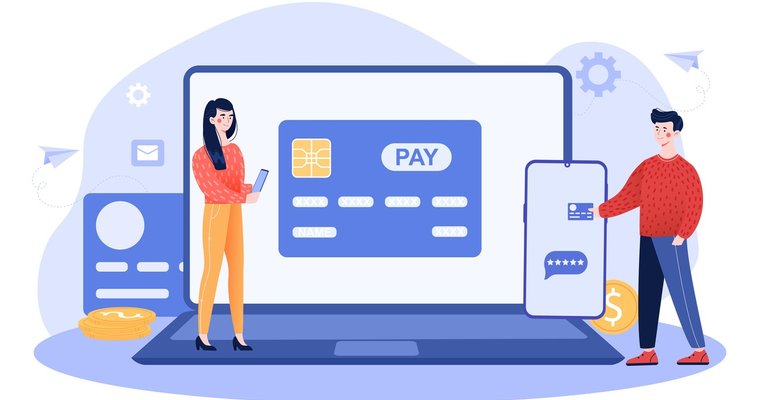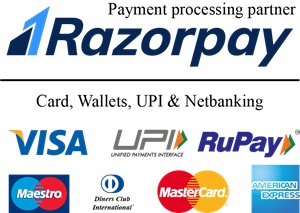AUTHOR : KYLIE SCOTT
DATE : 02/11/2023
In the digital age, businesses and also consumers alike rely on the convenience of electronic[2] payments[1].PPP play a pivotal role in ensuring these transactions are seamless, secure, and also efficient. In this article, we’ll delve into the world of PPP, understanding what they are, why businesses need them, and the key benefits they offer.
What Are PPP
PPP are entities that facilitate electronic transactions between businesses and consumers. They act as intermediaries, ensuring that payments made through various channels, such as credit cards, online wallets[3], or mobile apps, are processed smoothly. These partners manage the intricate web of financial transactions, making it easier for businesses to accept payments and customers to complete purchases[4].
Why Businesses Need PPP?
For businesses, payment processing partners are indispensable. They provide a secure and reliable way to accept payments from customers, whether in-store or online. Here are some compelling reasons why businesses need ppp .
- Security: Payment processing partners invest in advanced security measures to protect sensitive financial information.
- This fosters confidence in both enterprises and their clientele.
- Efficiency: Handling payment transactions can be complex. Payment processing partners streamline the process, ensuring that funds are transferred promptly and also accurately.
- Global Reach: Many businesses operate on a global scale. Payment processing partners enable them to accept payments from customers worldwide, supporting international growth.
- Compliance: Payment processing partners stay updated with the latest industry regulations and also ensure businesses remain compliant with payment card industry standards.
- Focus on Core Activities: By outsourcing payment processing, businesses can focus on their core operations rather than managing the intricacies of transactions.

The Key Benefits of Payment Processing Partnerships
Collaborating with payment processing partners offers numerous benefits:
- Enhanced Customer Experience: Fast and also hassle-free payments create a positive customer experience, increasing customer satisfaction and also loyalty.
- Reduced Payment Risks: Payment processing partners implement fraud detection and also prevention measures to mitigate risks.
- Diverse Payment Options: Businesses can accept payments through credit cards, debit cards, digital wallets, and more, accommodating various customer preferences.
- Analytics and Reporting: Partners provide insights into payment trends and also customer behavior, aiding in data-driven decision-making.
- Cost-Efficiency: Payment processing partners often offer competitive rates and pricing structures, reducing transaction costs for businesses.
Types of PPP
Payment processing partners come in various forms, each offering unique advantages:
Banks
Traditional banks provide payment processing services, catering to a wide range of businesses. They offer stability and a comprehensive suite of financial services.
Payment Gateways
Online payment gateways like PayPal and also Stripe enable businesses to accept online payments easily. They offer seamless integration into e-commerce platforms.
Merchant Service Providers
These providers offer a one-stop solution for payment processing, including hardware and also software for in-store transactions.
How to Choose the Right PPP
Selecting the right payment processing partner is crucial for the success of your business. Consider the following factors:
Fees and Costs
Understand the fee structure, including transaction fees, monthly fees, and also any hidden charges.
Security and Compliance
Ensure the partner adheres to strict security standards and industry compliance.
Integration and Compatibility
Choose a partner that seamlessly integrates with your existing systems and e-commerce platforms.
Popular PPP
Several payment processing partners have gained prominence in the market:
- PayPal: Known for its ease of use, PayPal is a widely accepted payment method for online businesses.
- Stripe: Stripe provides powerful APIs for customizing payment processes, making it popular among developers.
- Square: Square is a versatile choice for businesses with both online and brick-and-mortar operations.
- Authorize.Net: This payment gateway is trusted for its reliability and security.
The Role of PPP in E-commerce
E-commerce[5] businesses heavily rely on payment processing partners to enable seamless online transactions. These partners offer secure payment gateways, making it easier for customers to shop online.
Case Studies: Successful Payment Processing Partnerships
Let’s explore some real-world examples of successful payment processing partnerships showcasing how they benefited businesses.
Challenges in Payment Processing Partnerships
While payment processing partnerships offer numerous advantages, challenges can arise. Issues like technical glitches, fraud, and disputes can affect the smooth flow of transactions.
The Future of PPP
The payment processing landscape is continually evolving. The future promises more innovative technologies, enhanced security, and improved user experiences for businesses and consumers.
Conclusion
Payment processing partners are the unsung heroes behind every successful electronic transaction. They provide the infrastructure and expertise that enable businesses to thrive in the digital age. Choosing the right partner is crucial for business success, so weigh your options carefully.
FAQs
1. What is a payment processing partner? A PPP is an entity that facilitates electronic transactions between businesses and customers, ensuring secure and efficient payments.
2. How do payment processing partners enhance security? PPP implement advanced security measures to protect sensitive financial information, reducing the risk of fraud and data breaches.
3. Can businesses accept international payments with PPP? Yes, many PPP support international transactions, allowing businesses to accept payments from customers around the world.
4. What are some popular PPP for e-commerce businesses? PayPal, Stripe, Square, and Authorize.Net are popular PPP for e-commerce businesses.
5. What does the future hold for payment processing partnerships? The future promises more innovation, enhanced security, and improved user experiences, making electronic transactions even more seamless and secure.





